End Times Update 8, August 2018
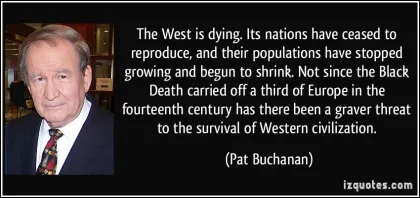
William Finck holds a general and casual discussion focused on the circumstances throughout the White Christians nations today in the context of Biblical prophecy.
Christogenea is 100% reader supported. If you find value in our work, please contribute and help to keep it going! See our Contact Page for more information!

William Finck holds a general and casual discussion focused on the circumstances throughout the White Christians nations today in the context of Biblical prophecy.

Identifying the Biblical “Beast of the Field”, Part 1
In recent weeks, we have presented both our own views and those of Clifton Emahiser on the ridiculous so-called 6th and 8th Day Creation theory. Now we shall address another issue which is very similar to that theory, which is the idea that certain races of hominids, from which we have the non-White races of today, were among the “living creature” (chay nephesh) or the “beast of the earth” (chay erets) created in Genesis chapter 1 where we read: “24 And God said, Let the earth bring forth the living creature after his kind, cattle, and creeping thing, and beast of the earth after his kind: and it was so. 25 And God made the beast of the earth after his kind, and cattle after their kind, and every thing that creepeth upon the earth after his kind: and God saw that it was good.” This is the usual fall-back position for those who endeavor to squeeze the beast races of hominids, the non-White races, into the Creation of God, as if any of them could possibly be “good”.
When I began my presentation of The Only True Adam of Genesis series in late June, I explained that I did so in part to address “certain so-called pastors in Christian Identity who cling to this fallacy of an 8th-Day Creation, and have the nerve to ridicule us for refuting it.” Now one of those same individuals, whom I will not yet name, is attempting to argue with me in social media over the idea that Yahweh created the non-White races as “beasts”. So he clings to two ideas for the creation of non-Whites, the 6th & 8th Day heresy, and this concept which we will begin to address here this evening. One way or another, there are so many fools who feel that they have to squeeze non-White races into the Creation of God, when all this time a “tree of the knowledge of good and evil” representing the corruption of Yahweh’s creation by fallen angels stares them in the face, and they overlook the significance.

William Finck and Sven Longshanks of Radio Aryan discuss the historicity of Genesis, the Genesis chapter 10 table of nations, and some of the archaeological evidence which supports the truths of our Bibles, and more...
NEW: try this link in a podcast catcher app or on iTunes: https://christogenea.org/podcasts/mp3feed
William Finck's opening notes are found below:
William Finck and Sven Longshanks of Radio Aryan discuss the historicity of Genesis, the Exodus, and some of the archaeological evidence which supports the truths of our Bibles. The true nature of the sacrifice of Abraham compared to similar acounts of human sacrifice in European literature, the ancient secular historical support for the Exodus account, a brief comparison of the Genesis account to the creation accounts of the surrounding nations, and more...
NEW: try this link in a podcast catcher app or on iTunes: https://christogenea.org/podcasts/mp3feed
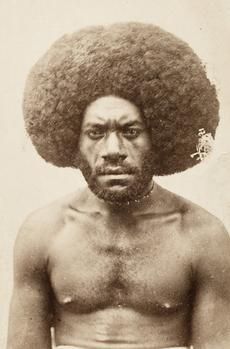
Remembering Clifton Emahiser, Who is the Beast of the Field?
Too many Identity Christians take for granted the claim that the non-White races are the so-called “beasts of the field”. While in some passages non-Whites may be described as beasts, the word beast in those instances being used as a pejorative, that does not mean that they are the “beasts of the field” or “beasts of the earth” of the Creation account in Genesis. Alan Campbell, Eli James and others have continually made that claim, but it simply is not true. Then, more nefariously, Eli James and his cronies would call them “men” in relation to the New Testament, which is a Jew trick if I ever saw one.

Tonight we continue mourning the death of our long-time friend and fellow-worker, Clifton Emahiser, who passed on Wednesday afternoon. I did my best to explain how that happened in a few words at the beginning of last night’s program, but I have not yet posted that recording. I will do that soon. Initially, I did not plan on writing a separate introduction for this evening, and have since changed my mind.
Last night, I asked for suggestions as to what to play today, and a dear friend and someone who has followed our work since 2009 made a request which would not have otherwise crossed my mind. He wanted me to replay a January, 2011 program that Clifton had done with me, which put the final nail in the coffin of my relationship with the fraud, the great impersonator, Eli James.
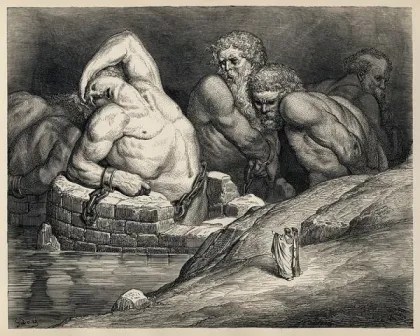
Remembering Clifton this evening, we replayed a program I presented with him on June 10th of 2011, The Angels Chained in Darkness
Tonight we are mourning the death of our long-time friend and fellow-worker, Clifton Emahiser, who passed on Wednesday afternoon. This introduction is prerecorded for both programs this weekend, July 20th and 21st, 2018, and each evening I will rebroadcast a program which Clifton and I did together over the past several years.
Clifton Emahiser had been very sick for a long time. He had a stent put in his heart in 1998. One can go to his very first Watchman’s Teaching Letter, published in May of 1998, and the first thing he discussed was his heart attack that February, and his promise to devote the rest of his life to a teaching ministry. I remember him telling me often, even while I was still in prison, which is now at least ten years ago, about his intermittent spells of high blood pressure or low pulse rates.
Last August he had fallen in his garage at home, spent 17 hours on the floor, and had suffered some minor heart attacks then. The type of heart attacks to which Clifton was susceptible were not the sudden, massive ones that usually kill men immediately, but more subtle, long-lasting ones that leave one too weak to do much of anything but to have anxiety. He was told last August that he had more blocked arteries, but because of his age he was not a candidate for heart surgery.

This may be the first time ever that I discussed the same subject on Friday and Saturday of the same weekend. At least, if I ever did it before, I do not remember. But there are two reasons why I must do it tonight. First, because this material is halfway prepared before I type a word, and my time is worn thin these past few weeks. So I can prepare this in just a few hours and Clifton has already done much of the core research. Then secondly, because if I have to present an entire series from Clifton’s writings over a few short weeks, there are few subjects more important than this one.
The Only True Adam of Genesis, Part 4: Origin of a Heresy
Rejecting the so-called 6th & 8th Day Creation heresy is an absolute necessity if Identity Christians are ever to have a clear and unshakable racial concept based on Scripture. We need a clear and unshakable racial concept if we are to survive the trials with which we are faced at the present time. We do not need any capitulation to Jewish concepts, and we do not need compromise with non-Adamic so-called ‘people’. As I have said many times in the past, Yahweh did not create any of these non-White races and call them “good”.
But rejecting the idea that Yahweh created non-Whites is not the same as saying that Adam was the first intelligent bipedal hominid on the planet. In Matthew chapter 13, Yahshua Christ explains the parable of the wheat and the tares, which informs us that Yahweh planted one kind: wheat, and that the tares were planted by the devil. But the devil had to be somewhere in order to be able to infiltrate the field and plant the tares. In that same place, Christ declared that “I will open my mouth in parables; I will utter things which have been kept secret from the foundation of the world.” So we cannot imagine that the entire truth of this planet and its history are revealed in the book of Genesis, if Christ Himself informs us that there were things which were purposely withheld from men until the gospel of Christ was proclaimed.

The Only True Adam of Genesis, Part 3: Adam’s Commission
We have been presenting this series, The Only True Adam, not only because I have been too busy with necessary but worldly tasks here at home to maintain my regular schedule, but also because we are constantly confronted both on social media and within our own real-world circle of associates with long-time Christian Identity adherents who believe that there were two distinct creations of man, each of them called adam, in the Genesis account in our Bibles.
The title of this series, first used by Clifton Emahiser several years ago, is a challenge to those people, that there is one – and only one – creation of Adamic man described in Genesis. The word adam is a collective noun referring to a race of men, as it says in Genesis 5:2 where we read “Male and female created he them; and blessed them, and called their name Adam, in the day when they were created.” This is a clear reference to the day described in Genesis 1:26-27, and it uses identical language from that passage to describe that race. But the word adam can also be a proper noun, a name used to describe the first male of that race.

The Only True Adam of Genesis, Part 2: ADAM in the Hebrew in Genesis
It never ceases to amaze me, how many times I may state something that is based upon at least two or three witnesses in Scripture, along with studies of word meanings in the original languages, along with contextual support, and often even historical support, yet people simply dismiss it because it goes against something which they were taught in the past. They are so confident in their supposed knowledge that they absolutely refuse to consider the possibility that they may be mistaken. They are so emotionally attached to their teachers, who are only fallible men, that they will not even examine the facts which underlie a contrary opinion.
Nowhere in Scripture do I see this phenomenon more often than in discussions of the creation of Adam which is described in Genesis chapters 1 and 2. Many people who learned their Christian Identity from Bertrand Comparet, Wesley Swift, or Sheldon Emry are so certain that there was an 8th-Day Creation of Adam distinct from the explicit 6th-Day Creation that they simply refuse to listen to any contrary evidence whatsoever. There is nothing wrong with being loyal to our teachers, but real loyalty would require studying behind them, and being able to prove everything which they told us for ourselves. For this Christ Himself never said “just take My word for it”, but rather He always said “search the scriptures”. Real loyalty would also require a dialogue when different results are obtained through that study. This is why there are science labs in high schools, so that students can prove through demonstration the things which they hear in the lectures, rather than merely taking those things for granted. If you are the only student whose metal rod did not expand when it was heated, you might have some great new discovery, or perhaps you only made an error in your measurements, and that is much more likely to be the case.
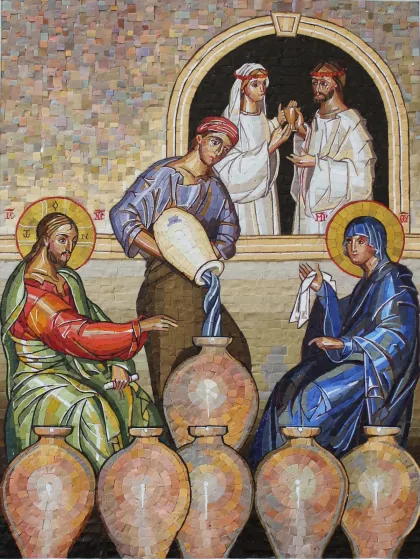
On the Gospel of John, Part 6: The Wedding Feast at Cana
In John chapter 1 the apostle had made many bold statements proclaiming the deity of Jesus, or Yahshua Christ. The assertions that He is the Word made Flesh, the Light of the World, the Lamb of God, and the declaration of the purpose of the ministry of John the Baptist all assert that Yahshua Christ is indeed Yahweh God incarnate. He is THE Son of God because He is the manifestation of God Himself, as it was promised in the Psalms and the prophets. This is better understood once the many passages from the Old Testament which also refer to these things are examined and considered, even if they were not all explicitly cited by John himself. The New Testament cannot be properly understood outside of the context provided by the Old Testament, and we sought to elucidate many of those passages as we presented John chapter 1 over the first five parts of this series.
The gospels of Luke and Matthew open with accounts of certain events from the birth and early life of Christ. But in the third chapter of each of those gospels there is the testimony of John the Baptist. The gospel of Mark, similar to that of John, says nothing of the birth or early years in the life of Christ, and opens with the testimony of John the Baptist. So the testimony of John is the event by which all four gospels open their descriptions of the beginning of the ministry of Christ. Doing so, all four gospels cite Isaiah 40:3, attributing the words to John as they are spoken in reference to Christ, where it describes “3 The voice of him that crieth in the wilderness, Prepare ye the way of the LORD, make straight in the desert a highway for our God,” and explains that John the Baptist was that voice. If John was that voice, then Yahshua Christ must be Yahweh incarnate, the God for whom he prepared the way.

William Finck discussed the European migrant crisis in light of Biblical prophecy. Is this immigration or is it really an actual invasion? Of course it is an invasion, but when will the rest of our White race wake up and realize what is happening?
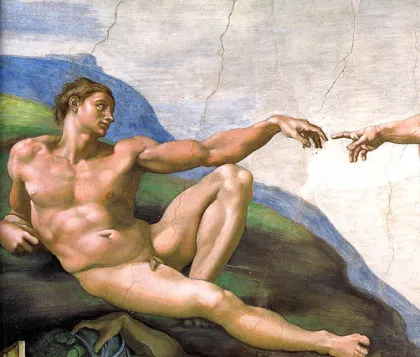
The Only True Adam of Genesis Chapters 1 and 2
This evening I am going to present a pair of short essays from Clifton Emahiser, which were originally titled The Only True Adam of Genesis 1:26-27 & 2:7, parts 1 and 2. Some of the comments and data that I may add to these articles as we proceed, I have already discussed at length in various podcasts and articles at Christogenea, but especially in Part 1 of my own Pragmatic Genesis series. Clifton himself has another article on this topic, which he had written some time later, titled "Adam" in the Hebrew in Genesis, and in that initial segment of Pragamatic Genesis I expanded on that article.
I am not going to get into much depth on Hebrew grammar this evening, which is the main topic of Clifton’s other paper and that first part of Pragmatic Genesis. But here I will only say that adding a preposition or a definite article to a noun does not by itself make that noun represent something different from what it represents without the preposition or article. The people who push the idea of two distinct Adamic creations attempt to do just that, and by it they display their own ignorance.

Another End Times Update. Tonight we begin a discussion of Ezekiel chapters 38 & 39, which are separate visions of the same event prophesied to befall the Camp of the Saints in Revelation chapter 20. Of course, none of these prophecies describe what the mainstream denominational Christians or the satanic antichrist Jews claim that they describe.

The Road to Here. A chat with some friends, Ferlin, Doug, Sonny and Brett, how they came to Christian Identity, their influences and some of the opinions they formed along the way.
We thank them for their edification and encouragement.
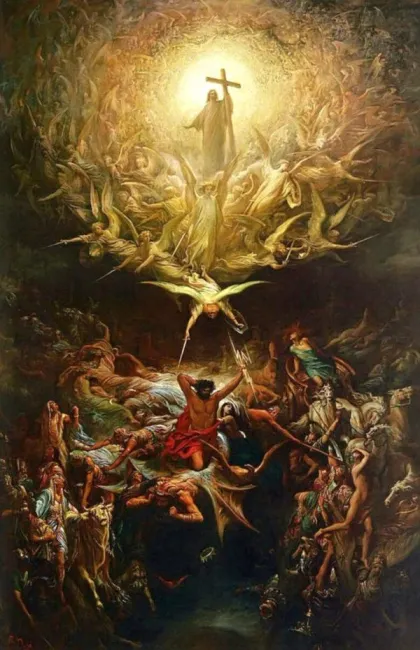
A Critical Review of Bertrand Comparet’s Sermon I COME AS A THIEF
Here we are going to present a critical review of Bertrand Comparet’s Sermon I Come as a Thief. Doing this, we may be especially hard on Comparet for his failed view of eschatology, but before we criticize him we will also admit that, if we had lived in his same era, we too may have fallen into the trap which he did, believing that the end of the age was going to come to its conclusion in the Cold War with the Soviet Union and a nuclear conflagration and invasion of the United States by Communist hordes.
But we now see that the Communist hordes were here all along, and they have already come to control practically everything of note in America. They are called Jews, and have deceived us with party politics and capitalist internationalism while making our Western nations safe for Marxism and a flood of non-White so-called immigrants. These devils were still under much deeper cover in the 1960’s when Comparet was writing, and even he did not see what was truly going to come.
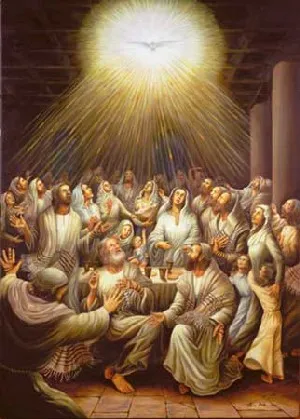
We apologize to the live listeners who did not hear the last 8 minutes of this podcast. Our streaming computer, which has been quite reliable these past few years, suddenly cut off and Windows 10 began updating itself. This behavior is, of course, contrary to the settings which are supposed to preclude it from doing that during a live program.
On the Gospel of John, Part 5: The Focus of the Disciple
All four of our Christian gospels are written in a very simple and forthright manner, and they describe very little outside of the interactions of Yahshua Christ with His disciples and the people who He had encountered directly, along with some of His teachings and the miracles which He had done, and, of course, His final clash with the authorities. While sometimes they mention a few significant historical figures or events which relate to the birth and life of Christ or the beginning of His ministry, little is described of the world outside of the immediate Gospel narrative. So there are no deep explanations or descriptions of history or current events, nor is there much concern for the political, economic or social conditions in Judaea or the greater part of the Roman empire.
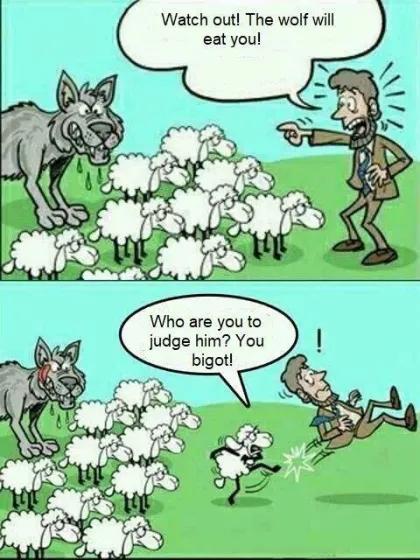
William Finck talks to Clifton Emahiser about Covenant Theology vs. Replacement Theology, and Clifton's experiences debating with members over his own family over his Christian Identity beliefs.
As probably all of our listeners know, Clifton Emahiser had suffered a bad fall in his home last August, so we moved him here to Florida to stay with us. Just before his accident, Clifton had sent me a few short essays to proofread, and finally, after ten months, I have been getting around to it. We posted two of those essays on his website this morning. The first, we presented in a discussion here a few weeks ago, which was Pitfalls Found in Biblical Research Materials, Part 1. I labelled that as “Part 1”, and not Clifton, hoping to encourage him to write a sequel, because it is a topic about which I am certain he has a lot more to say. Now we have Clifton here with us once again to discuss the second of those essays, which I also posted to his website this morning.
Sadly, this turned out to be Clifton's last podcast. We miss him dearly.

On the Gospel of John, Part 4: The Lamb of God
Presenting Part 3 of this commentary on the Gospel of John, which was titled The Sons of God, we gave a full explanation of our translation of John 1:11-13, and we cannot sufficiently stress how important it is to understand the impact which one’s worldview can have upon one’s interpretation of Scripture. I also understand that these presentations may at times be very technical and hard to digest. However we must develop a scholarly basis for a proper understanding of the text before we can even begin to claim to understand the Bible. If one is persuaded by the commonly-accepted interpretations of the Jews concerning the ministry of Christ, then it is easy to accept the King James Version and other popular translations of these verses. So like a lamb being led to the slaughter, one may helplessly be led to believe that the universalist perspective of Scripture is true, and that all those who merely profess a belief in Jesus must therefore be accepted as having somehow become “sons of god” by a mere profession of their lips, and as if they could possibly even make that choice on their own.

The Protocols of Satan, Part 39: Who is your god?
Before I began last week’s program, I meant to apologize for an error I made in an off-the-cuff remark in part 37 of this series, so I will do that now. As I was presenting my prepared notes, and while searching my mind for the first notable apologist for the capitalist system, the only name I could come up with was Montesquieu, for some reason, and admitted that I may have been incorrect. But that was an error. The name I was looking for was Frédéric Bastiat, the French economist, politician and Freemason whom we had discussed at length in Part 14 of this series on the Protocols. So I apologize for that, and of course I never claimed to be perfect…
For the past several presentations of this series on the Protocols, since Part 35, Inciting Class Warfare, we have been discussing various aspects of a few paragraphs of Protocol No. 3, where the authors had boasted of their intent to incite strife and divisions between the classes, to create a large-scale economic crisis resulting in vast unemployment in Europe which would turn the lower classes to violence against the upper, all as a means of convincing the Goyim to capitulate to their planned Jewish domination of society. This is exactly what happened, and we will culminate that discussion here. Once again, we shall read these paragraphs which we have been discussing from Protocol No. 3, from the text of Boris Brasol’s publication of The Protocols and World Revolution:
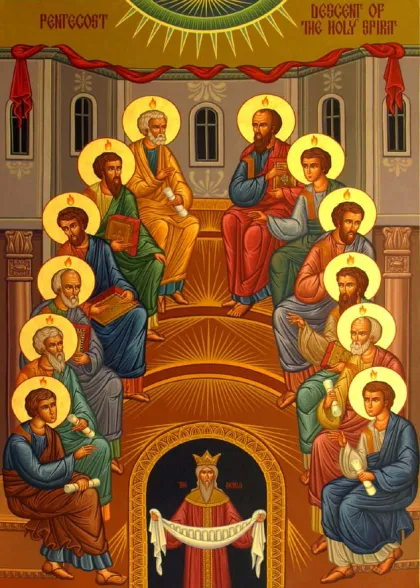
On the Gospel of John, Part 3: The Sons of God
In the opening portions of this commentary on the Gospel of John, we hope to have sufficiently illustrated from Old Testament Scriptures, as well as from the Revelation and other sources, the meanings of the assertions that Yahshua Christ is the Word made Flesh and the Light come into the World, assertions by which the apostle had poetically and confidently attested that Yahshua Christ was indeed Yahweh God Himself, the God of the Old Testament incarnate as a man, and that He was the true Messenger to man sweeping aside all of the false claims of antiquity. So we saw that John, attesting that Christ is the light come into the world, had also made an assertion in reference to Christ which had formerly been claimed by the great kings of antiquity, those of the Hittites, Babylonians, Egyptians and others, who had made that same claim for themselves, even imagining for themselves to be the incarnation of the Sun on earth. Later, in John chapter 12, Christ Himself is recorded as having originated the assertions which John has made for Him here, as the event actually preceded the record.
Then coming to verse 10 of this first chapter of John, we contended with the King James translation of the passage, which reads “He was in the world, and the world was made by him, and the world knew him not.” The meaning of this passage clearly may have been different in the original understanding of the English of 1611, the word world now having a different meaning. Examining that word world, we came to the conclusion that the word would better be translated as society, since it does not refer to the entire planet and everything on it in the way that it is often interpreted today. There are passages in the classical Greek writings where the word appears in broad contexts and may be interpreted as universe, however that is not necessarily the manner in which it was used in the New Testament, and it was not always the manner in which the classical Greek writers had used the term...
Christogenea is reader supported. This month's support level is reflected in the graph below. See our Contact page for a mailing address and other ways to support Christogenea.
100%